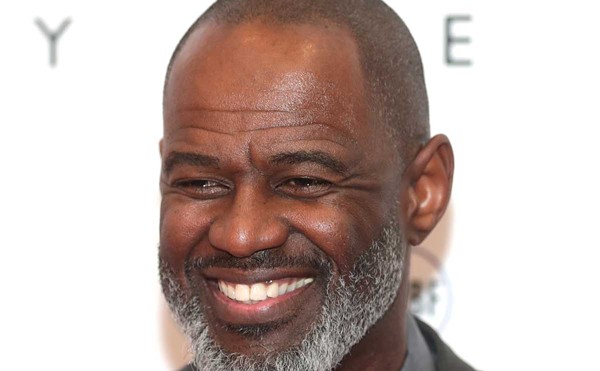Across Michigan, incumbent and would-be county prosecutors are slugging it out with an eye on the polls. But for all the press releases, candidates forums, TV ads and flesh-pressing, for all the charges and promises, something fundamental is being overlooked – the dramatic expansion of the prosecutor’s role over the last three decades.
As an increasingly powerful arm of government, the prosecutor sets policies felt acutely by the public. But all too often the prosecutor’s office operates without the same degree of checks and balances that regulate other areas of government. This situation invites abuse, according to organizations such as the Criminal Justice Policy Foundation and the American Civil Liberties Union. Others say that the nature of the office makes it difficult for outsiders to follow its actions.
Said former federal prosecutor and Wayne State University law professor Peter Henning: “It’s true that they have a tremendous amount of power, but how they make decisions is often privileged information. There is very little transparency in this particular branch of government.”
In the dark
Brian Mackie, Washtenaw County prosecutor and president of the Michigan Prosecutors Association, has similar concerns: “I’m amazed at how little people know about what we do.”
Some prosecutors play the public stage more than others, but all need to better educate people about the job – a process that begins and ends with election, he said.
In Wayne County, which handles almost two-thirds of the state’s 60,000 felony cases and has 160 prosecutors on staff, a field of six Democrats are vying to replace outgoing Chief Prosecutor John O’Hair in the August primary. The serious candidates are state Sen. Virgil Smith, Wayne County Deputy Executive Michael Duggan, Chief Assistant Prosecutor George Ward, and Sharon McPhail, a former assistant prosecutor and failed candidate for mayor of Detroit and Wayne County executive. In heavily Democratic Wayne County, the Democratic primary, for all practical purposes, determines the prosecutor.
In Republican-dominated Oakland County, candidates are gearing up for a fiery race against Prosecutor David Gorcyca, the man who won murder convictions in the controversial cases of Dr. Jack Kevorkian and 11-year-old Nathaniel Abraham. Clarkston attorney David McCleary will take on Gorcyca in the GOP primary. The winner will run against Democrat Matthew Turner of West Bloomfield.
In Macomb County, only a day after declaring that he was in the state Supreme Court race, Carl Marlinga, who has served as county prosecutor for 16 years, reversed direction and jumped back into the prosecutor’s race about 30 minutes before the filing deadline. Other Democratic candidates include New Baltimore attorney Thomas Rombach and Roy Transit of Frazer. Republicans include Macomb County Assistant Prosecutor Dean Alan, former Macomb County Chief Circuit Court Judge Robert Chrzanowski and C. Michael Kimber of St. Clair Shores.
Social services
Pursuit of drug crime, white-collar crime and, more recently, crimes related to technology has greatly expanded the job of the prosecutor, says WSU’s Henning. Meanwhile, the recognition of many crimes as symptoms of underlying social problems has drawn many prosecutors’ offices into administering a variety of social programs through the justice system.
In Wayne County, for example, the prosecutor’s office oversees a diversion program to provide supervision and support (rather than jail) to first-time offenders. In Washtenaw County, prosecutors have targeted deadbeat dads with a system monitoring child-support payments.
“The prosecutor has a much larger role today,” said O’Hair, who in addition to the diversion program has started such outreach efforts as community meetings and a program to help support abandoned children. “All of these programs are designed to prevent people from entering the system in the first place.”
But organizations such as the ACLU, the Criminal Justice Policy Foundation and several groups that represent defense attorneys have other concerns.
Rigid sentencing guidelines and other new, tough anti-crime laws – along with hardball plea bargaining tactics and a public that is ever more fearful of crime – have given prosecutors unprecedented strength inside the courtroom and out.
“It’s an office of enormous discretion,” said Eric Sterling, a spokesman for the Washington, D.C.-based Criminal Justice Policy Foundation. “People fear crime and want it prosecuted aggressively – too often at the expense of constitutional rights.”
Talking about crime policy is good politics and being tough on crime is even better, he said. The prosecutor’s office is a well-established stepping-stone for ambitious lawyers. This can set up a system of perverse incentives in which prosecutors pursue cases that are unsound but improve their conviction statistics and look good in the headlines, Sterling said.
“Every prosecutor and prosecutor’s office needs to be evaluated individually,” said Sterling, “But there is a trend toward politically ambitious prosecutors with win-at-any-cost attitudes.”
The so-called war on drugs is perhaps the stage on which this is played out most dramatically, he said. Draconian mandatory minimum sentences for drug crimes in states from California to Michigan encourage defendants to name names to reduce their own sentences, he said. Often those implicated by the defendant are innocent – a fact of which prosecutors are aware but often do little to discourage, he said.
“This has simply become part of the process,” said Sterling. “It’s called ‘testalying’ in New York and ‘the liar’s club’ in Los Angeles. Prosecutors know it goes on.”
The ACLU and the Criminal Justice Policy Foundation are currently championing several cases around the country of innocent people charged in drug crimes based on the flimsy testimony of other defendants and no evidence, said Sterling.
“Eric’s” case
In a case now on appeal, one Michigan convict argues that he is an example of such practices.
Six months ago “Eric” – who spoke on condition that his real name not be used, fearing publicity could affect his appeal – was arrested in a drug sting carried out jointly by local police and the Bureau of Alcohol, Tobacco and Firearms (ATF). At the time Eric was living with his brother – the target of the sting – while working as a mechanic and making child support payments to his ex-wife for their 6-year-old son.
Law enforcement mistook Eric for his brother and raided the east side Detroit house shortly after Eric returned from work. His brother was not home. The police found enough cocaine to charge the owner with trafficking. Eric maintains the cocaine was not his and that he has no criminal record associated with drugs, although he did have youthful misdemeanors for petty theft. His brother, on the other hand, has been arrested twice for drug-related crimes, said Eric.
But Eric refused to testify against his brother, saying he knew nothing about the drugs in question. So, prosecutors turned their aim on him, charging him with possession of narcotics with intent to sell, he said. To make matters worse, because the investigation was a joint operation of local police and ATF agents, Eric could be tried in either state or federal court. Prosecutors made good on a threat to have him prosecuted in state court, which carries a more severe mandatory life sentence for the crime, because he did not help the government get his brother.
“Look, my brother’s business is none of mine,” he said. “I was clean. They have no evidence linking me, no witnesses and no record. It’s not fair they should come down hard on me because they came up empty on my brother.”
Without specific information O’Hair would not comment on Eric’s case. But aggressive prosecution of crimes – within ethical boundaries – is what good prosecutors do, he said.
“You can’t say because there are questionable practices in LA that it’s happening here,” he said. “Wayne County does not have a win-at-any-cost mentality.”
But defense attorney Jeanice Dagher-Margosian is not surprised by Eric’s story and says such prosecutions – and worse – happen all the time in Michigan’s courts. Several other defense attorneys contacted for this story reacted similarly.
“There’s no question this stuff goes on,” she said. “Some prosecutors are beyond aggressive. It’s unconscionable – and unconstitutional.”
“Barter system”
Bumping up charges is only one example of the many ways in which prosecutors are operating with diminished restraint, Dagher-Margosian said. They are also usurping territory that traditionally has belonged to a judge. Prosecutors now exert tremendous control over the pre-trial examination, the place where it is decided what evidence and witnesses can be presented in a case. Prosecutors also control how – exactly – the defendant will be charged, thus giving the prosecutor tremendous influence over how a defendant will plead, which in turn affects sentencing.
“Plea bargaining, sentencing, the presentation of evidence – the courts have become a barter system,” said Dagher-Margosian. “And it’s one in which prosecutors have increasing leverage. It becomes the individual defendant against the unchecked power of the entire state.”
Judges are willing to cede much of the decision-making process to prosecutors because many judges, too, are elected officials and sensitive to public opinion, said Henning. It is often easier to simply sidestep a tough call.
“I think these problems always existed,” he said. “You’re just seeing more of it in the open these days. No one ever looks at the decisions made on the day-to-day level.”
Asking questions
But government and a variety of interest groups are beginning to look. Even Congress has acknowledged the problem. A 1994 report by the Congressional Sentencing Commission criticized mandatory minimum sentencing and the overall transfer of power in the courts from judges – who are supposed to be impartial – to prosecutors, who are not.
So, what makes a good prosecutor in today’s criminal justice system?
Attorney General Janet Reno – the country’s top lawyer – in a commencement address last June at Northwestern University’s Chicago law school implored graduates who wish to become prosecutors to “use your smarts to identify what the problems really are, get the facts straight and work only in the interest of the community.”
Here in Michigan, those who work closely with the state’s prosecutors – law enforcement, defense attorneys and other prosecutors – second Reno’s sentiments, with a few additions of their own.
Prosecutors work closely with law enforcement in several ways. They issue warrants for suspects arrested by police and oversee longer investigations. Law enforcement and prosecutors together deliver the one-two punch that lands criminals in jail, said Michigan State Police Capt. John Shepard.
“A good prosecutor is consistent and chooses the standards to impose and what to target,” he said. “They need to be responsive to the community issues and to what law enforcement needs to carry out their demands.”
Marianne Ciefer, a chief defender in the federal district court that serves Michigan, says that above all else the prosecutor’s office must set standards in both law enforcement and criminal justice. The best prosecutors are forthright with evidence and work fairly with the defense.
“If an office is run with a win-at-any-cost attitude the defendant isn’t going to get a fair shake,” she said. “Prosecutors also need to be defenders of the Constitution. How they behave filters all the way down to the cop on the beat.”
A good prosecutor knows that criminal justice begins, but does not end, with the individual case, said Mackie. Prosecutors must address the broader social issues that are played out through the justice system.
“People need to demand that prosecutors are accountable and take on important issues – racial justice, reasonable search laws and fair sentencing,” he said. “If prosecutors are not fulfilling their obligation to the community then the community has to say so at the ballot box.”
John Smock is a freelance writer based in New York. E-mail [email protected]




